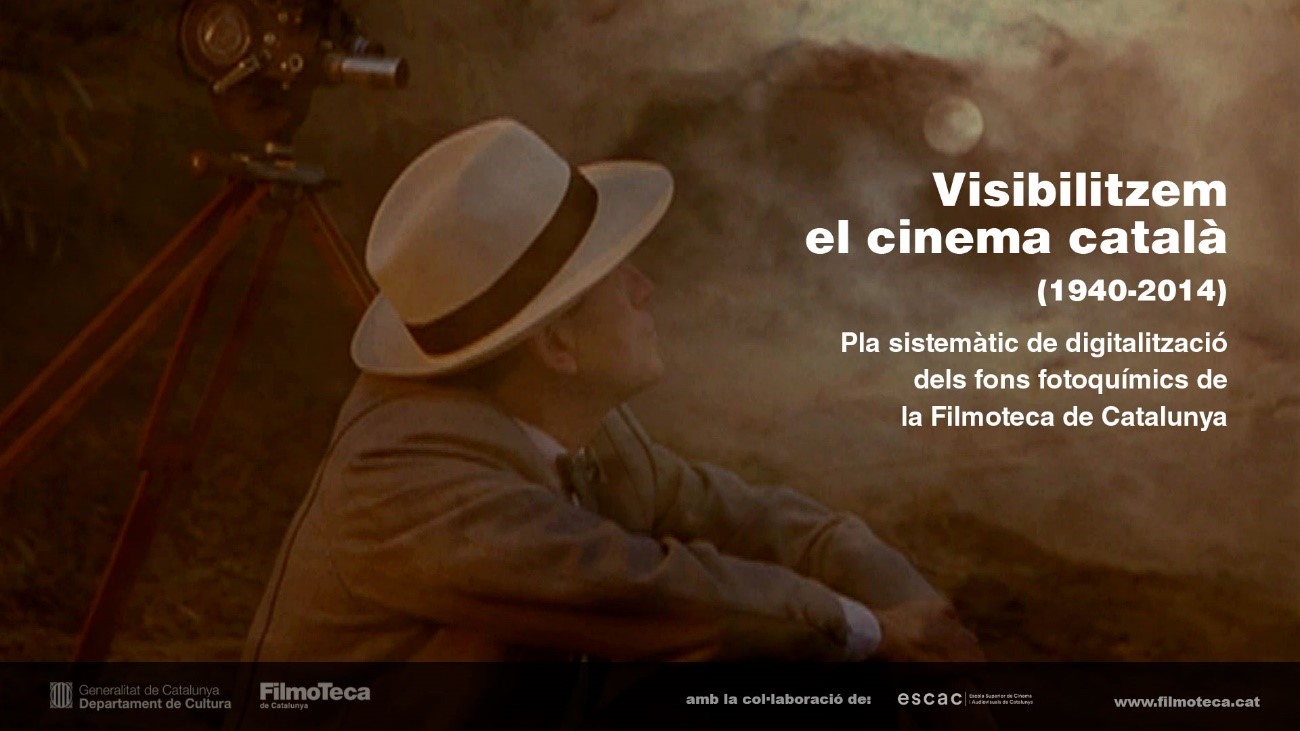The ESCAC collaborates with the Filmoteca’s Plan for the digitisation of its photochemical archives.
The Catalan Regional Minister of Culture, Natàlia Garriga, and the director of the Film Archive, Esteve Riambau, presented the Digitisation Plan together with the director of the Escola Superior de Cinema i Audiovisuals de Catalunya (ESCAC), Sergi Casamitjana.
Consellera Garriga: “When we think of audiovisuals, we often only think of production and exhibition…. But the preservation and dissemination of our audiovisual heritage is key”.
The new transversal cycle ‘Permanent History of Catalan Cinema’ will present the new digitalisations as part of the Filmoteca’s programme.

In addition to the tasks of conserving, restoring and preserving, the Filmoteca cannot renounce the task of disseminating. To this end, in the predominant digital context of film exhibition, it is essential to implement a systematic plan which, in the first year, will digitise 8 feature films and 8 short films made in Catalonia from the 1940s onwards, of which there are no digital copies available. These titles will be added to the catalogue Basics of Catalan and Singular Cinema of the Film Library, which already has 25 feature films and 40 short films in digital support.
The work process is carried out at the Filmoteca’s Conservation and Restoration Centre, where there are the original materials and the digital restoration and encoding systems for dissemination and long-term conservation; and at the ESCAC, where there is the scanner for digital capture and the colour room for etalonatge or colour correction. With this shared knowledge and infrastructure, the Filmoteca de Catalunya can carry out the film heritage digitisation project, and the ESCAC students can continue filming in photochemical and do the digital capture, within the school, as part of their training.
From 2023 and in the coming years, an external commission, representative of the film sector, will determine the titles to be digitised, at the proposal of the Film Library, following the criteria of the state of conservation, the lack of available digital copies and the agreement of the owners of the rights to cede them for cultural use. In this way, the catalogue is expected to increase each year with feature films and a dozen or so digitised short films.
As the new digitisations become available, they will be made available as part of the Filmoteca’s programme at the Raval site, in a long-term, transversal cycle entitled The Permanent History of Catalan Cinema.